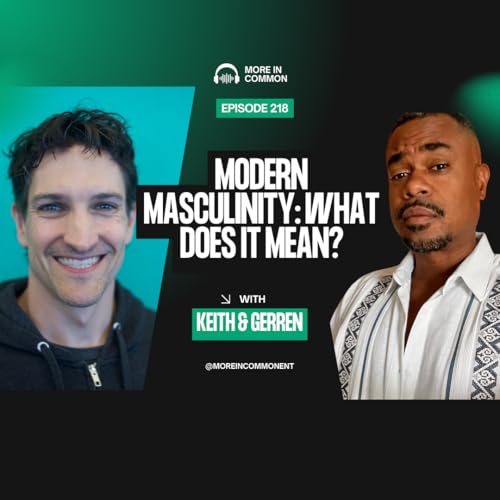Episode Description In this episode of More In Common, Keith Richardson sits down with Jen Oliver for a deeply personal and grounded conversation about truth, recovery, relationships, and self-awareness.
Jen opens up about her lived experience navigating honesty in recovery, the subtle ways we distort truth to protect ourselves, and how self-protection can quietly erode intimacy. The conversation explores how unspoken narratives shape relationships, how motives influence communication, and what it takes to build trust when honesty feels risky.
This episode isn’t about abstract philosophy — it’s about the practical, emotional work of telling the truth when it costs you something. Together, Keith and Jen unpack how emotional maturity develops, how recovery sharpens self-awareness, and why integrity in relationships requires both courage and humility.
If you’ve ever struggled with hard conversations, protecting yourself in conflict, or reconciling your internal truth with what you present to the world, this episode will hit close to home.
Keywords truth in relationships, honesty in recovery, emotional maturity, self-protection, emotional intelligence, relationship conflict, communication skills, recovery journey, personal accountability, relational integrity, vulnerability, navigating honesty, growth mindset, modern relationships
Core Themes & Takeaways -
Truth often reveals itself through tension.
-
Recovery sharpens awareness of motive.
-
Self-protection can become isolation.
-
Integrity requires alignment between inner and outer truth.
-
Honesty in relationships is built, not assumed.
-
Emotional maturity is developed through discomfort.
-
The stories we tell ourselves shape how we show up.
Sound Bites (Aligned to Episode Tone) “Sometimes the truth isn’t what we say — it’s what we’re avoiding.”
“You can protect yourself right out of connection.”
“Recovery forces you to look at your motives.”
“Honesty doesn’t mean being harsh. It means being aligned.”
Chapters / Time Stamps 00:00 – Introduction & Framing the Conversation 02:18 – Finding Your True Voice in a Noisy World 08:07 – The Impact of Untruths in Relationships 14:25 – Motives, Self-Protection & Emotional Safety 20:40 – Honesty in Recovery: What It Really Requires 26:15 – Conflict, Accountability & Growth 32:48 – Navigating Truth Without Losing Compassion 38:10 – Living in Alignment with Your Values 42:30 – Final Reflections on Integrity & Connection
Episode Through-Line Jen is on the show to explore how truth functions as a muscle — one strengthened through recovery, relationship friction, and self-examination.
Throughout the conversation, the recurring thread is this:
Truth isn’t just about accuracy — it’s about alignment.
When our motives, words, and actions drift apart, connection erodes. When they realign, trust grows.
This episode reinforces a central More In Common idea: growth happens when we’re willing to examine ourselves honestly — especially in the places we’d rather not.
///
More In Common Website | https://www.moreincommonent.com/ Instagram | https://www.instagram.com/moreincommonent Twitter | https://twitter.com/MoreInCommonent Facebook | https://www.facebook.com/moreincommonpod
 33 m
33 m 38 m
38 m 31 m
31 m 30 m
30 m 30 m
30 m Jan 23 202635 m
Jan 23 202635 m 32 m
32 m Jan 9 202630 m
Jan 9 202630 m
